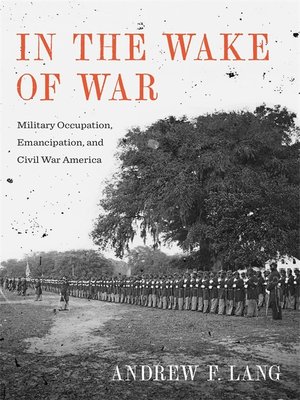In the Wake of War
ebook ∣ Military Occupation, Emancipation, and Civil War America · Conflicting Worlds: New Dimensions of the American Civil War
By Andrew F. Lang

Sign up to save your library
With an OverDrive account, you can save your favorite libraries for at-a-glance information about availability. Find out more about OverDrive accounts.
Find this title in Libby, the library reading app by OverDrive.



Search for a digital library with this title
Title found at these libraries:
| Loading... |
The Civil War era marked the dawn of American wars of military occupation, inaugurating a tradition that persisted through the late nineteenth and early twentieth centuries and that continues to the present. In the Wake of War traces how volunteer and even professional soldiers found themselves tasked with the unprecedented project of wartime and peacetime military occupation, initiating a national debate about the changing nature of American military practice that continued into Reconstruction.
In the Mexican-American War and the Civil War, citizen-soldiers confronted the complicated challenges of invading, occupying, and subduing hostile peoples and nations. Drawing on firsthand accounts from soldiers in United States occupation forces, Andrew F. Lang shows that many white volunteers equated their martial responsibilities with those of standing armies, which were viewed as corrupting institutions hostile to the republican military ethos. With the advent of emancipation came the enlistment of African American troops into Union armies, facilitating an extraordinary change in how provisional soldiers interpreted military occupation. Black soldiers, many of whom had been formerly enslaved, garrisoned regions defeated by Union armies and embraced occupation as a tool for destabilizing the South's long-standing racial hierarchy. Ultimately, Lang argues, traditional fears about the army's role in peacetime society, grounded in suspicions of standing military forces and heated by a growing ambivalence about racial equality, governed the trials of Reconstruction.
Focusing on how U.S. soldiers—white and black, volunteer and regular—enacted and critiqued their unprecedented duties behind the lines during the Civil War era, In the Wake of War reveals the dynamic, often problematic conditions of military occupation.






